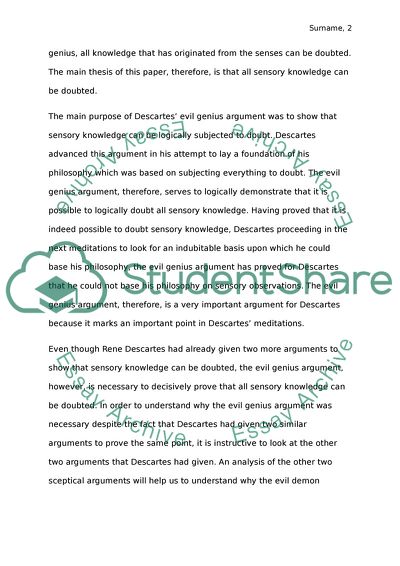Cite this document
(Rene Descartes' Evil Genius Argument Essay Example | Topics and Well Written Essays - 1500 words, n.d.)
Rene Descartes' Evil Genius Argument Essay Example | Topics and Well Written Essays - 1500 words. https://studentshare.org/philosophy/1876233-evil-genius
Rene Descartes' Evil Genius Argument Essay Example | Topics and Well Written Essays - 1500 words. https://studentshare.org/philosophy/1876233-evil-genius
(Rene Descartes' Evil Genius Argument Essay Example | Topics and Well Written Essays - 1500 Words)
Rene Descartes' Evil Genius Argument Essay Example | Topics and Well Written Essays - 1500 Words. https://studentshare.org/philosophy/1876233-evil-genius.
Rene Descartes' Evil Genius Argument Essay Example | Topics and Well Written Essays - 1500 Words. https://studentshare.org/philosophy/1876233-evil-genius.
“Rene Descartes' Evil Genius Argument Essay Example | Topics and Well Written Essays - 1500 Words”. https://studentshare.org/philosophy/1876233-evil-genius.


